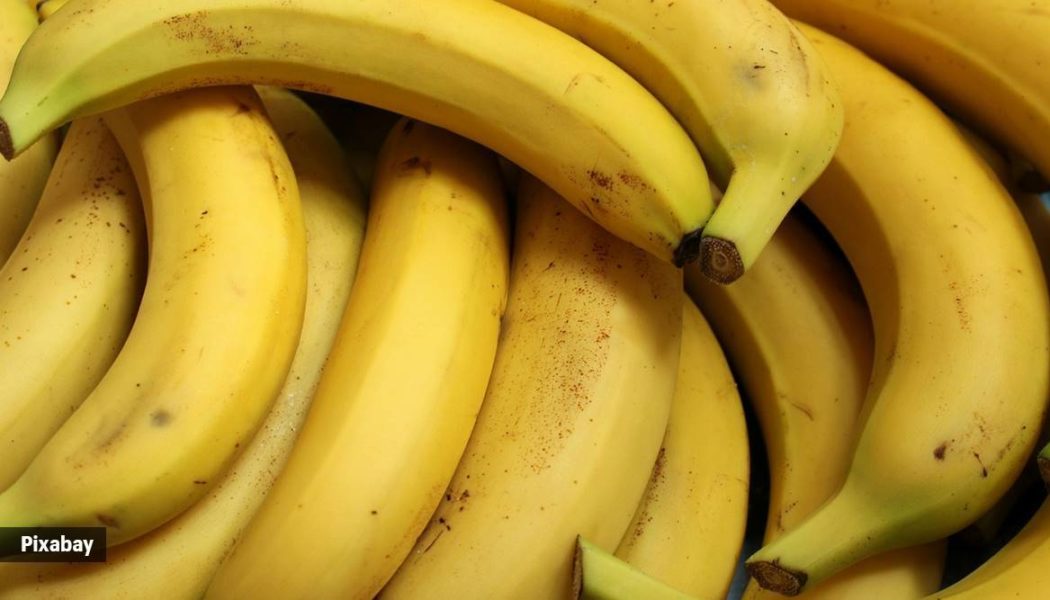Well, your fruit doesn’t need to be fancy or expensive to provide you with wonderful health benefits. The case in point is the humble banana, which boasts of umpteen benefits — it improves your digestion and immunity, is good for brain function, and can also help uplift your mood. This easily available yellow-coloured fruit is also a quick energy booster packed with various nutrients, making it an excellent post-workout snack. Bananas also aid heart health, muscle function, and help in maintaining healthy blood pressure levels, among other things.
The nutritional profile of a banana
Dr G Sushma – Consultant – Clinical Dietician, CARE Hospitals, Banjara Hills, Hyderabad shared the nutritional profile of banana, per 118 grams, as:
– Calories: 105
– Carbohydrates: 27 grams
– Fiber: 3 grams
– Protein: 1 gram
– Fat: 0 grams
– Vitamin C: 14% of the Daily Value (DV)
– Vitamin B6: 20% of the DV
– Potassium: 9% of the DV
– Magnesium: 8% of the DV
– Copper: 5% of the DV
– Manganese: 15% of the DV
 Bananas contain tryptophan, which helps the body produce serotonin, a neurotransmitter that contributes to mood regulation. (Pic source: Pixabay)
Bananas contain tryptophan, which helps the body produce serotonin, a neurotransmitter that contributes to mood regulation. (Pic source: Pixabay)
Health benefits of banana
Below are various health benefits of bananas, as shared by Dr Sushma.
1. Good source of fiber: Bananas contain both soluble and insoluble fiber, promoting digestive health and aiding in regular bowel movements.
2. Provides energy: The natural sugars in bananas, such as glucose, fructose, and sucrose, provide a quick source of energy.
3. Good for heart health: Bananas are rich in potassium which is essential for heart health, proper muscle function, and maintaining healthy blood pressure levels. Bananas can be beneficial for heart health due to their potassium content, which can help lower blood pressure. Additionally, the fiber content in bananas may contribute to maintaining healthy cholesterol levels.
4. Good for immunity and skin: Bananas are rich in vitamin C – an antioxidant that supports immune function and helps in the production of collagen for healthy skin.
5. Good for brain health: Bananas contain vitamin B6 which is important for brain development, hormone production, and immune system function.
6. Natural mood booster: Bananas contain tryptophan, which helps the body produce serotonin, a neurotransmitter that contributes to mood regulation.
Eat bananas to beat constipation
Bananas can help relieve constipation due to their fiber content. “The soluble fiber in bananas absorbs water and adds bulk to the stool, facilitating its passage through the digestive system,” shared Dr Sushma.
Advertisement
She added, “The effect may vary from person to person, and it’s always advisable to consume a variety of high-fiber foods along with an adequate intake of water for optimal digestive health”.
However, if you have chronic or severe constipation, it’s important to consult a healthcare professional for proper evaluation and guidance.
 The soluble fiber in bananas absorbs water and adds bulk to the stool, facilitating its passage through the digestive system (Pic source: Getty/Thinkstock)
The soluble fiber in bananas absorbs water and adds bulk to the stool, facilitating its passage through the digestive system (Pic source: Getty/Thinkstock)
Can diabetics consume bananas?
People with diabetes can generally include bananas in their diet, but portion control is essential. “Bananas have a moderate glycemic index, which means they can cause a moderate increase in blood sugar levels,” shared Dr Sushma, adding that the glycemic response can vary depending on the ripeness of the banana. “Riper bananas tend to have a higher glycemic index. It is recommended to consult with a healthcare professional or a registered dietitian to determine the appropriate portion size and incorporate bananas into a well-balanced meal plan”.
Advertisement
Can bananas aid weight loss?
Despite being a delicious sweet treat, bananas can help in your weight loss journey. They not only make a great pre or post workout snack due to its nutrient levels and energy giving properties but also promote a feeling of fullness – which can help in weight loss.
“Although bananas are relatively high in carbohydrates, they also contain fiber, which aids in digestion and can promote feelings of fullness. As part of a balanced diet and active lifestyle, bananas can be included in a weight loss plan,” shared Dr Sushma. However, portion control is important due to their calorie content.
 Bananas not only make a great pre or post workout snack due to its nutrient levels and energy giving properties but also promote a feeling of fullness, which can help in weight loss. (Pic source: Freepik)
Bananas not only make a great pre or post workout snack due to its nutrient levels and energy giving properties but also promote a feeling of fullness, which can help in weight loss. (Pic source: Freepik)
Things to keep in mind
In general, bananas can be a nutritious and versatile fruit to include in a well-rounded diet. However, individual dietary needs and health conditions may vary, so it’s always best to consult with a healthcare professional or a registered dietitian for personalised advice. “Remember that a balanced and varied diet, combined with regular physical activity, is key to maintaining good overall health,” concluded Dr Sushma.
📣 For more lifestyle news, follow us on Instagram | Twitter | Facebook and don’t miss out on the latest updates!









